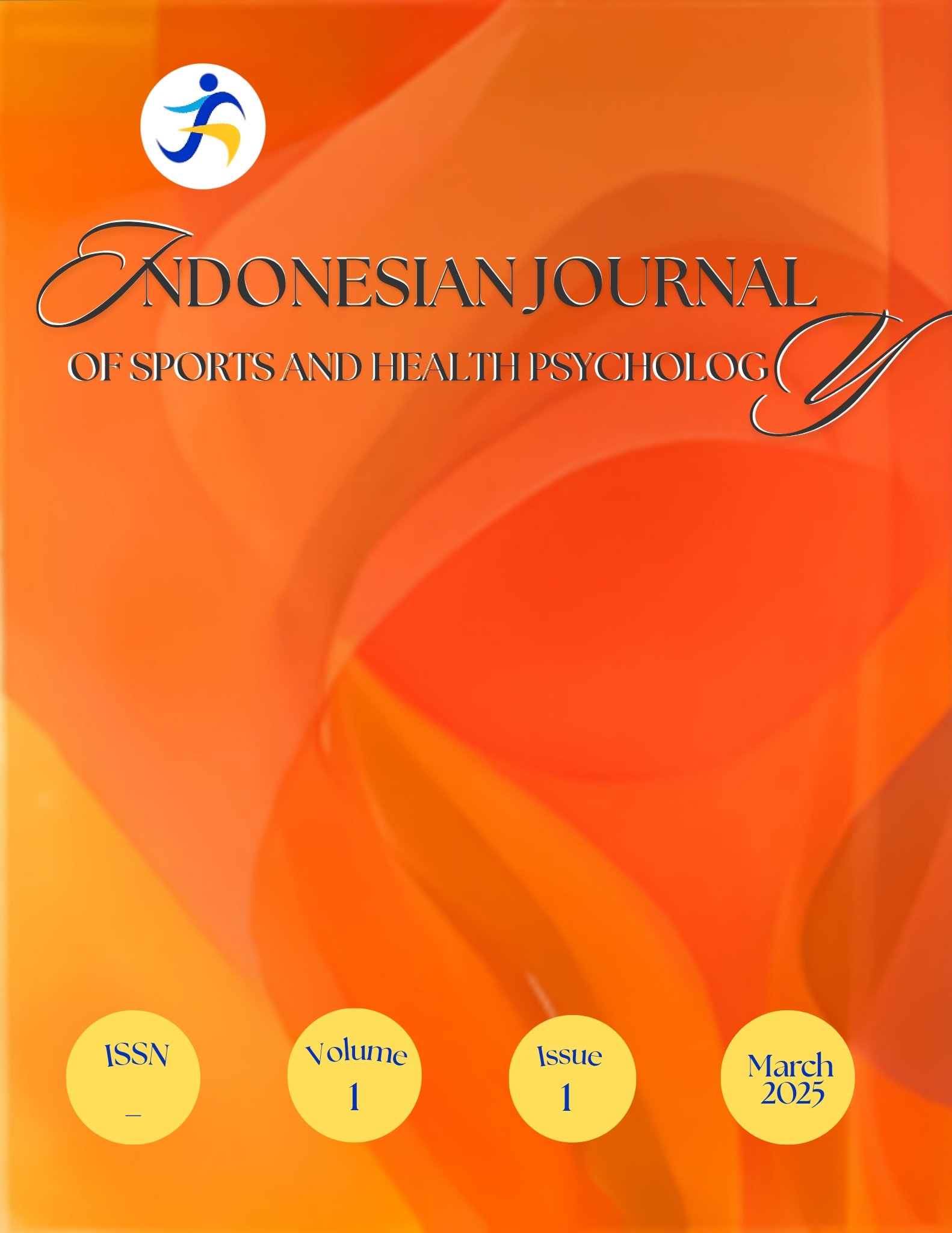Confirmatory Factor Analysis of the Academic Stress Scale
Keywords:
Academic stress scale, college student, confirmatory factor analysisAbstract
Background: Academic stress is a prevalent issue among university students, arising from high academic demands, such as accumulated assignments, intensive examinations, and high expectations from their surroundings. This stress negatively impacts mental health and academic performance. Objective: This study aims to examine the construct validity of the Indonesian version of the Educational Stress Scale for Adolescents (ESSA) through Confirmatory Factor Analysis (CFA), to establish its applicability in measuring academic stress among Indonesian students. Method: A total of 1,280 third-semester students from Surabaya State University were selected using purposive sampling. The study was conducted through four primary stages: scale translation, modification, pilot testing, and confirmatory factor analysis using SPSS. Result: Findings indicate that the Indonesian ESSA version is both valid and reliable, with five main factors: Pressure from Study (items 1, 2, 3), Workload (item 7), Worry about Grades (items 8 and 9), Self-Expectation (items 12 and 14), and Despondency (item 15). These results align with the theoretical construct proposed by Sun et al., which comprises five core subscales: pressure from study, workload, worry about grades, self-expectation, and despondency. Conclusion: Thus, the Indonesian version of ESSA can serve as a valid and reliable instrument for assessing academic stress among Indonesian university students.
Abstrak
Latar Belakang: Stres akademik merupakan masalah yang lazim di kalangan mahasiswa, yang timbul dari tuntutan akademik yang tinggi, seperti tugas yang menumpuk, ujian intensif, dan harapan yang tinggi dari lingkungan mereka. Stres ini berdampak negatif pada kesehatan mental dan kinerja akademik. Tujuan: Penelitian ini bertujuan untuk menguji validitas konstruk versi Indonesia dari Skala Stres Pendidikan untuk Remaja (ESSA) melalui Analisis Faktor Konfirmatori (CFA), dengan tujuan untuk menetapkan penerapannya dalam mengukur stres akademik di kalangan mahasiswa Indonesia. Metode: Sebanyak 1.280 mahasiswa semester tiga dari Universitas Negeri Surabaya dipilih menggunakan purposive sampling. Penelitian ini dilakukan melalui empat tahap utama: penerjemahan skala, modifikasi, uji coba, dan analisis faktor konfirmatori menggunakan SPSS. Hasil: Temuan menunjukkan bahwa versi Indonesia ESSA valid dan reliabel, dengan lima faktor utama: Tekanan dari Studi (item 1, 2, 3), Beban Kerja (item 7), Kekhawatiran tentang Nilai (item 8 dan 9), Harapan Diri (item 12 dan 14), dan Keputusasaan (item 15). Hasil ini sejalan dengan konstruk teoretis yang diajukan oleh Sun dkk., yang terdiri dari lima subskala inti: tekanan belajar, beban kerja, kekhawatiran tentang nilai, ekspektasi diri, dan keputusasaan. Kesimpulan: Dengan demikian, ESSA versi Indonesia dapat berfungsi sebagai instrumen yang valid dan reliabel untuk menilai stres akademik di kalangan mahasiswa Indonesia.
References
Abdullah, S. F., Shah, N. A., & Idaris, R. M. (2020). Stress and Its relationship with the academic performance of higher institution students. International Journal of Advanced Research in Education and Society, 2(1), 61–73. http://myjms.moe.gov.my/index.php/ijares
Alduraywish, S., Alburikan, A., Alotaibi, M., Alhamoudi, A., Aldosari, A., Alturki, M., Alotaibi, A., & Tharkar, S. (2023). Association between academic stress during exam period, dietary behavior and bowel symptoms among medical students in Saudi Arabia. Clinical Epidemiology and Global Health, 22. https://doi.org/10.1016/j.cegh.2023.101318
Ambarwati, P. D., Pinilih, S. S., & Astuti, R. T. (2017). Gambar tingkat stres mahasiswa. Jurnal Keperawatan Jiwa, 5(1), 40–47. https://doi.org/https://doi.org/10.26714/jkj.5.1.2017.40-47
Barseli, M., Ahmad, R., & Ifdil, I. (2018). Hubungan stres akademik siswa dengan hasil belajar. Jurnal EDUCATIO: Jurnal Pendidikan Indonesia, 4(1), 40. https://doi.org/10.29210/120182136
Barseli, M., Ifdil, I., & Fitria, L. (2020). Stress akademik akibat Covid-19. JPGI (Jurnal Penelitian Guru Indonesia), 5(2), 95. https://doi.org/10.29210/02733jpgi0005
Barseli, M., Ifdil, I., & Nikmarijal, N. (2017). Konsep stres akademik siswa. Jurnal Konseling Dan Pendidikan, 5(3), 143–148. https://doi.org/10.29210/119800
Erindana, F., Nashori, H., & Tasaufi, M. (2021). Penyesuaian diri dan stres akademik mahasiswa tahun pertama. Motiva: Jurnal Psikologi, 4(1), 11–18. https://doi.org/https://doi.org/10.31293/mv.v4i1.5303
Gatari, A. (2020). Hubungan stres akademik dengan flow akademik pada mahasiswa. Cognicia, 8(1), 79–89. https://doi.org/https://doi.org/10.22219/cognicia.v8i1.11739
Han, R., Xu, T., Shi, Y., & Liu, W. (2024). The risk role of defeat on the mental health of college students: A moderated mediation effect of academic stress and interpersonal relationships. International Journal of Mental Health Promotion, 0(0), 1–10. https://doi.org/10.32604/ijmhp.2024.054884
Iqra. (2024). A systematic – Review of academic stress intended to improve the educational journey of learners. Methods in Psychology, 11. https://doi.org/10.1016/j.metip.2024.100163
Liu, Y., Chen, J., Chen, K., Liu, J., & Wang, W. (2023). The associations aetween academic stress and depression among college students: A moderated chain mediation model of negative affect, sleep quality, and social support. Acta Psychologica, 239, 1–11. https://doi.org/10.1016/j.actpsy.2023.104014
Oktavia, W., Fitroh, R., Wulandari, H., & Fitri, F. (2019). Faktor-faktor yang mempengaruhi stres akademik. Prosiding Seminar Nasional Magister Psikologi Universitas Ahmad Dahlan, 142–149.
Puspita, B., & Kumalasari, D. (2022). Prokrastinasi dan stres akademik mahasiswa. Jurnal Penelitian Psikologi, 13(2), 79–87. https://doi.org/10.29080/jpp.v13i2.818
Putra, S. D. (2015). Uji validitas konstruk pada instrumen student-life stress inventory dengan metode confirmatory factor analysis. Jurnal Pengukuran Psikologi Dan Pendidikan Indonesia, 4(3), 1–10. https://doi.org/10.15408/jp3i.v4i3.9298
Rehman, M., & Sharif, R. (2014). How percieved stress can influence performance: Analyzing the role of some critical stressors. Journal of Contemporary Studies, 3(1), 51–63. https://doi.org/https://doi.org/10.54690/jcs.v3i1.100
Rosyidah, I., Efendi, A., Arfah, M., Jasman, P., & Pratami, N. (2020). Gambaran tingkat stres akademik mahasiswa program studi ilmu keperawatan fakultas keperawatan unhas. Jurnal Abdi, 2(1), 33–39.
Sun, J., Dunne, M. P., Hou, X.-Y., & Xu, A.-Q. (2011). Educational stress scale for adolescents: Development, validity, and reliability with chinese students. Journal of Psychoeducational Assessment, 29(6), 534–546. https://doi.org/https://doi.org/10.1177/0734282910394976
Vera, C., Delgado, M., Milla, Y., & Saintila, J. (2024). Relationship between stressors with emotional exhaustion and coping strategies: The mediating role of academic stress symptoms in Peruvian adolescents. International Journal of Educational Research Open, 7, 1–7. https://doi.org/10.1016/j.ijedro.2024.100394
Yusuf, N., & Yusuf, J. (2020). Faktor-faktor yang mempengaruhi stres akademik. Psyche 165 Journal, 13(2), 235–239. https://doi.org/https://doi.org/10.35134/jpsy165.v13i2.84
Downloads
Published
How to Cite
Issue
Section
License
Copyright (c) 2025 Damajanti Kusuma Dewi, Amjodti Laily Agindaris, Aiko Rahmalilla Ananda Susanto, Fadila Dian Wardani

This work is licensed under a Creative Commons Attribution 4.0 International License.
 Abstract views: 1342
,
Abstract views: 1342
, PDF Downloads: 1696
PDF Downloads: 1696






